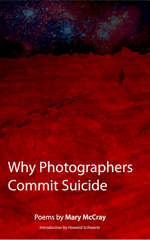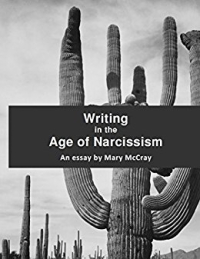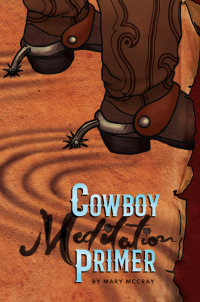 This amazing world, huh?
This amazing world, huh?
In August my friend Ann told me about a poetry board game called Dead Poets Rise, a game that was not yet for sale. I sat across from Ann practically losing my shit. A board game for poets? I’m a poet! I love board games!
I tried and failed to get in on the funding by sending a message to the game Facebook page. Possibly I was too late, but I did get added to the mailing list. The game went on sale last fall for $100. This seems like a steep price when you consider games going for $20-40 on Amazon and Target. But I’ve noticed really popular and well-designed games are going for $100 on eBay, games like The Gallerist (about planning art exhibitions at your gallery and rumored to be the hardest strategy game out there, a factoid told to me by one of the clerks at my local board game hangout) and Shakespeare (where similarly you plan out a theatrical show).
This is a very nice game and I can see why it’s listed at that price point. I got a copy as a Christmas gift. Thanks Mom!
The Stuff
It’s a beautiful game in an awesome hexagonal-shaped box. The only flaw is that the box doesn’t close properly and needs a paper strap that’s hard to get on and off to keep it closed so that the contents don’t all spill out when you try to stash it in your closet. The paper is already tearing and will give up the ghost before long and I’ll have to be careful with storage. Right now the game is not being stored with my other board games but with my conspicuous poetry consumption objects.
The cover also acts as a hexagonal board with quotes printed along the edges. There are also juicy elements like a die, three decks of cards, tons of marbles! And a board that looks like Chinese checkers. Also included are mechanical pencils (with little eraser hats and a box of replacement graphite), pads of paper and a sticky notepad for all your writing prompts.
You also need a phone to look up texts and videos as part of the writing prompts.
The instructions
The instructions attempt to explain in words how to set up the board but we had no idea what we should end up with. The instructions need a picture of the board at the start of play. The main issue was that there were too many marbles for the available marble holes and we needed to have a combination of black and green marbles. But how many black marbles did we need? The instructions didn’t say. And should there be more black marbles in games with more players? There were black and green marbles and big shooting marbles (to represent the players). Shooting marbles went into easily marked holes around the edges of the board. We just had to guess.
 Instructions should be specific about how many black marbles to “roll out” per number of players and then instruct the players to fill in the rest of the holes with green marbles. Why were there so many bags of marbles in the first place? There was a nice tan bag full of big beautiful shooter marbles, a beautiful black bag with the game logo full of green marbles. Then there was an extra plastic bag of 12 black marbles and another extra plastic bag containing 4 green and 2 black marbles. We never did figure out what all the different bags meant.
Instructions should be specific about how many black marbles to “roll out” per number of players and then instruct the players to fill in the rest of the holes with green marbles. Why were there so many bags of marbles in the first place? There was a nice tan bag full of big beautiful shooter marbles, a beautiful black bag with the game logo full of green marbles. Then there was an extra plastic bag of 12 black marbles and another extra plastic bag containing 4 green and 2 black marbles. We never did figure out what all the different bags meant.
The black and green marbles were referred to as common and uncommon marbles which seemed unnecessary. In fact the game had too much new terminology that was maybe intended to create ambience in the game but it ended up just being confusing.
Instead of getting a specially made single die with low numbers, the instructions had a die translator. This annoyed me more than it did Monsieur Big Bang who was playing the game with me.
A word about Monsieur Big Bang, he hates board games. He grew up with bar games like pool and foosball, not that he’s crazy about those games now either (maybe with the exception of pinball). During Covid I got into board games somewhat excitedly. I focused on finding 1) games I felt deprived of as a child like Mystery Date or Go To the Head of the Class, two games my girlfriends had, 2) detective games with map boards and 3) games with pictures of famous art or art-related games (which is a crossover of #1 and the fact that my eldest brother had the game Masterpiece and refused to play it with me for mysterious reasons so I’ve been obsessing about that game ever since.

 A word about me: I am notoriously bad at board games. I just like the doo-dads, setting them up, sorting it all out, losing the game and then putting everything back in the box. Just typing all that out makes me want to do it right now. My eldest brother did play games with me from time to time, but only war games like Risk or Battleship, during which he famously won by lying for the whole game and I guessed every single space until it was impossible not to have hit one of his ships by then. I lost by gullibility but then he was 7 years older than me so…I don’t feel too bad about that.
A word about me: I am notoriously bad at board games. I just like the doo-dads, setting them up, sorting it all out, losing the game and then putting everything back in the box. Just typing all that out makes me want to do it right now. My eldest brother did play games with me from time to time, but only war games like Risk or Battleship, during which he famously won by lying for the whole game and I guessed every single space until it was impossible not to have hit one of his ships by then. I lost by gullibility but then he was 7 years older than me so…I don’t feel too bad about that.
Getting Monsieur Big Bang to play board games is always a struggle, especially these days because he is very busy. And my local friends have their own games they want to play, so I’m collecting quite a stack of unplayed board games. I even bought one called Plunder with a pirate raiding theme (and little tiny ships with attachable masts and cannons) thinking it would entice Monsieur Big Bang (who also used to like Risk) but that was a no go. One of the last games I made him play was the aforementioned Mystery Date. I had a few friends who had this game but they never wanted to play it (also mysteriously). It has such an awesome opening door feature and I was always wanting to play it.

It turns out my girlfriends didn’t want to play this game because it is mind-bogglingly boring and takes too much time around the board before you can ever get a chance to actually open the technological marvel of that door to reveal your date for the night. I recently snared a copy and talked Monsieur Big Bang into playing it and (can you believe it?) I kept losing this game too! He kept getting the ball-room prince and the ski hunk and I kept getting the ‘dud,’ by which the game just means disheveled guy.
Oh yeah, so another annoying thing about Mystery Date is that is was created in the late 1950s and has seriously outdated ideas as to what makes an attractive date for the typical 1970s little girl. Twenty years later and that ‘dud’ looks pretty much like the most attractive guy in the deck and the others look like the duds.
But that doesn’t change the fact that I’m not very good at board game strategy. And this game would prove no exception, professional-poet expertise aside.
Dead Poets Rise has two stacks of Creation and Chaos cards. You use them to write a poem while your working to collect marbles on the board.

Creation cards give you prompts for lines of your poem. Chaos cards sabotage the directions you were headed with those lines.
Examples of Creation cards: use the words always, never, sometimes in your next line, use alliteration with pr, pl, gr, gl sounds, search Google with provided prompts for words, write about a smell in the room, write about two disparate objects in the room, fill in this sentence when I hear ambulances I want to ….
Monsieur Big Bang said at this point the game felt like a Mad Lib.
Examples of sabotage cards: change one of your words to the opposite, change your verb tense, change the past to the future.

Unfortunately, there were quite a few duplicate cards and some triplicate cards. Coming from a family of poker players who can do fancy acrobatic playing-card shuffling, I can tell you I also suck at card shuffling. So I have to shuffle like ten times and still we couldn’t get them shuffled enough to reduce the duplicates We also caught a typo in the word ‘corresponds’ in one of the cards.
Hopefully these things will get rectified. All the prompts should be original.
We played the short game for two people. The object is to roll the die and move across the board collecting a certain amount of black and green marbles. Once you have all your marbles you can move into the center area of play called The Sphynx Challenge.
Each turn also draws Creation and Chaos cards that help each player create a poem in the style of one of the “dead poets,” obscure poets that comprise another, most interesting deck.
You actually start things off with this dead poet deck, which includes separate little packs containing a handful of cards each for one obscure poet. At the beginning of the game, you all agree on the poet and everyone pulls a poet card with some biography and samples of poems. The players also choose a random theme from a list in the instructions. You use the theme and the poetry samples to write “in the style” of the poet you are attempting to “resurrect.”
It sounds more complicated than it is.
The back of the dead poet packs have biographical information and each player gets one of cards with snippets of their poems on it. These are the cards we drew:

By the time of The Sphynx Challenge at the end, you have pretty much a completed poem and the challenge is to read one line of your “fake” poem lines and two lines of the real poet’s poem and others have to guess which line is yours.
We each guessed each other’s fake lines.
In fact, Monsieur Big Bang won on the technicality that he was the first to make it to the Sphynx area with is big marble. And our decision to have him guess my fake line was just courtesy play.
The punishment for losing the Sphynx challenge seemed too much for the short version of the game (three green marbles) but then again your marbles don’t win you the game so who cares.
The Sphynx challenge introduced the elements of points which seemed sudden and out of place and the game provided no material to track these sudden points (grab a piece of paper). It felt like an after-thought, an additional confusion. And yet those points would determine the winner as people won or lost the challenge. Then again, it was also possible we weren’t playing it right. The whole points layer was confusing.
At the end of the game, we felt like the game was missing something and I couldn’t articulate it. The box had all the do-dads, after all.
Monsieur Big Bang had some ideas though. He said you could almost dispense with the board play and use the card prompts for writing exercises, like for students, friends or just playing alone. He said it was lacking a sense of a game’s highs and lows. There was no real feel of competition. And so we discussed board games that lacked this competition element and yet were still fun, like the Encanto movie board game. In that game you work together against a clock to save the house. It’s still fun but not cut-throat.

My friend Julie recently gave me a very Dungeon and Dragons like haunted house game, Betrayal at House on the Hill, (which I haven’t found anyone to play with yet), and the first half of that game is cooperative to set up the board pieces and the second half of the game, once the monsters get tripped off, is competing against a common monster and against each other.

Dead Poets Rise did feel like a writing exercise more than a game. I also didn’t understand the rationale for collecting the marbles except to extend our writing time with the prompt cards. The game does seem to needs more conflict, if not against each other than with some external element.
Monsieur Big Bang also felt the game didn’t have enough person-to-person contact. And you didn’t feel invested because there wasn’t enough drama, which prompted a retelling of the the joke I learned at Sarah Lawrence, “why are poets (and thus poetry board games) so cut throat? Because the stakes are so low.”
The stakes felt very low for this game. And maybe that’s where game drama lives.
The final imposter challenge did seem most satisfying at the end and maybe that could be worked into regular game play. Considering it was one of the most fun aspects of the game, it was disappointing that the first person to enter the final Sphynx challenge area quickly won the game before anybody else could experience the fun of being an impostor.
I also really liked discovering, if not feeling like I fully “resurrected,” the dead poet. Our poet was Celia Dropkin and our theme was “the war within.” I had never heard of this Russian-born Yiddish poet who immigrated to New York City at the turn of the century (and passed away in the 1950s) so that was great fun for me (more so than for the non-poet-player).

Although there are some fixes needed, I do want to emphasize it’s a fun box of beautiful things and I will be playing it again and showing it to other poets.
My resulting poem turned out like this:
Untitled (the task of adding a title could be added to the play somehow)
Maybe my mother’s yearning
is never in me like conception (Not a bad start)
and the silence of the Gods gone quiet
like all the fires of the world going out,
grounded, groused and groveling for air. (What a mess of a run-on!)
And to survive I strive to organize. (True, dat)
When I hear ambulance I want to
melt into the water like ground (Good prompt to switch those words)
where the italicized roots of Latin are buried. (I had to change roots to monks. Boo.)
And the world revolves on the sight of glass
and dollars and dead poets. (I like the end)
 We’re making our way through Elisa New’s queries on what poetry is, questions she posed in the Harvard’s Emily Dickinson MOOC. Here’s the next question in the list: is poetry language other human beings necessarily hear or read?
We’re making our way through Elisa New’s queries on what poetry is, questions she posed in the Harvard’s Emily Dickinson MOOC. Here’s the next question in the list: is poetry language other human beings necessarily hear or read?










































